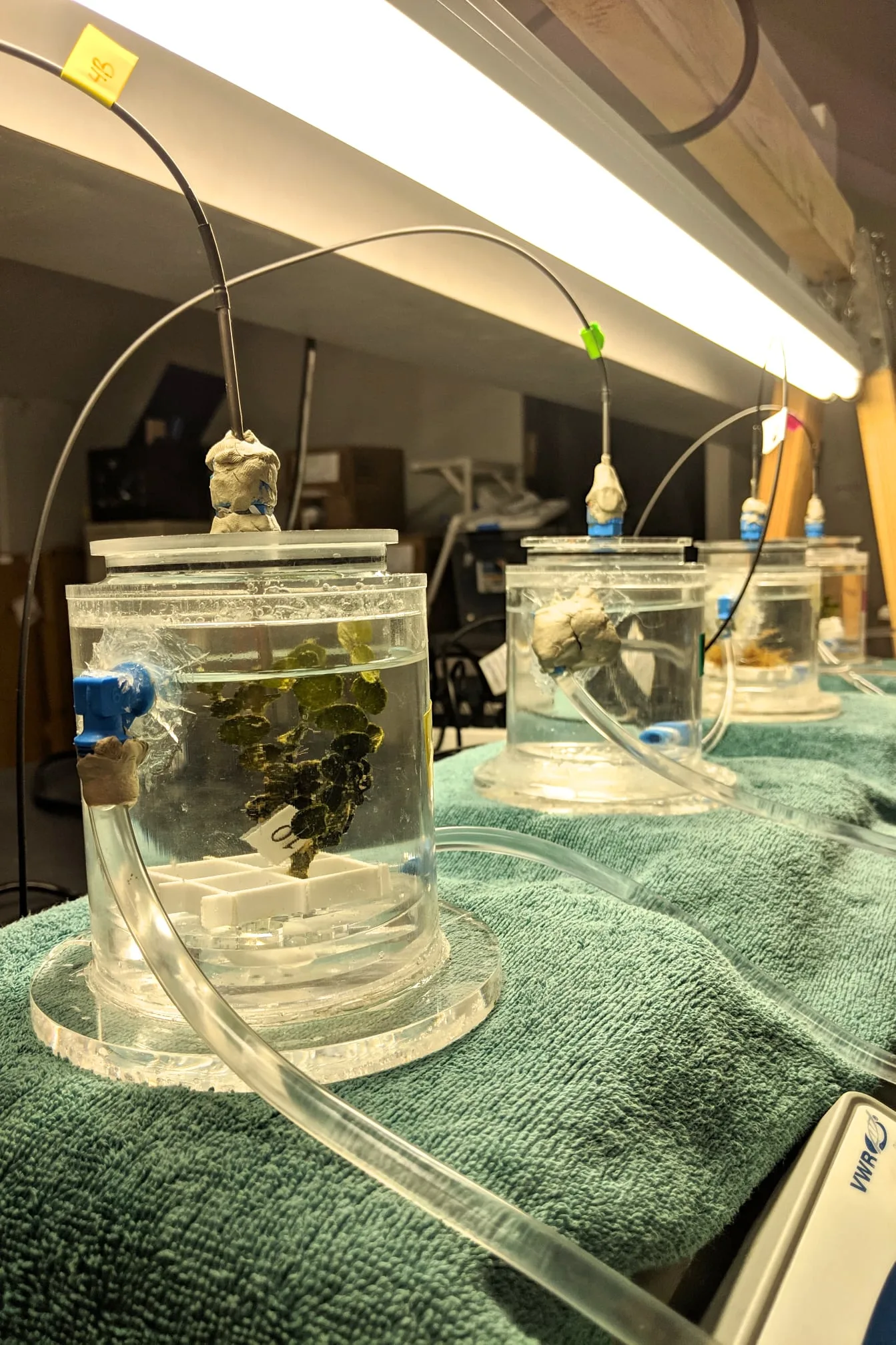News
SEA’s Dr. Heather Page Research Published

In “Effects of ocean acidification on growth and photophysiology of two tropical reef macroalgae,” PLOS One (2023), an article co-authored by SEA’s Assistant Professor in Reef Biological Oceanography, Dr. Heather Page, researchers explored the impacts of ocean acidification on two common macroalgaes found along the Florida Reef Tract.
As the world grapples with climate change and bears witness to mass bleaching events along coral reefs, Page et al. built upon previous research to better understand how macroalgae species, Dictyota and Halimeda, respond to decreasing pH levels associated with rising carbon dioxide in the atmosphere. Understanding how different algae species respond to acidification is crucial for predicting reef health under the growing pressure of climate change.
Despite the commonality of Dictyota and Halimeda along the world’s reefs, Page et al. found that there is limited research on these species. Scientists determined additional research is required to better understand the impacts and effects of ocean acidification. Page et al. suggested future research should stem across varying regions and environmental conditions to better analyze the physiological and environmental mechanisms driving growth and primary production in reef macroalgae (Page et al., 2023).
Dr. Page serves as Chief Scientist of SEA’s Coral Reef Conservation: Caribbean program. Designed for undergraduate students interested in gaining hands on experience in coral reef research, Coral Reef Conservation: Caribbean takes a wholistic approach in understanding human impacts on 2 coral reefs, the value of coral reefs to Caribbean Island communities, and examining reef management strategies.
The full research article can be found on PLOS ONE.